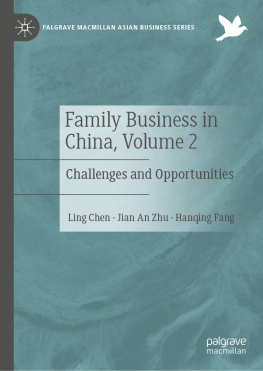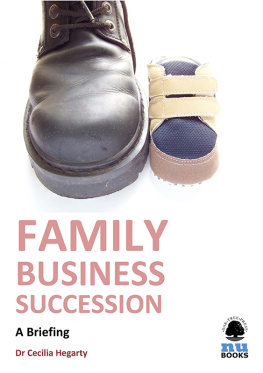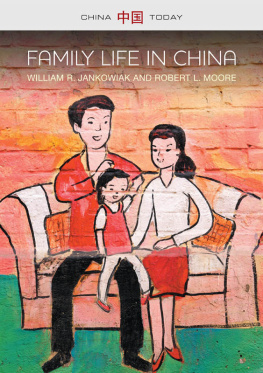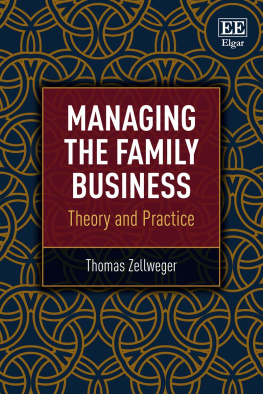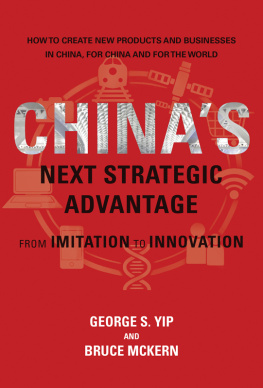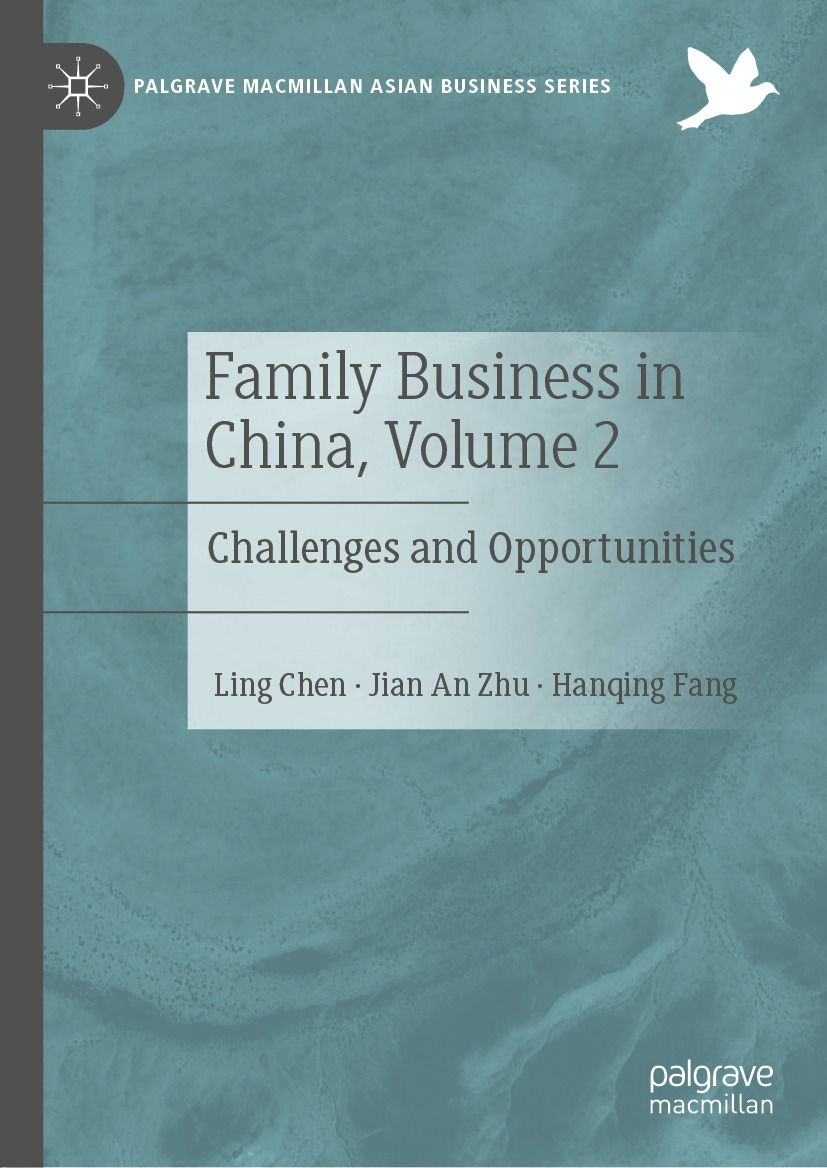Palgrave Macmillan Asian Business Series
Series Editor
Yingqi Wei
Business School, University of Leeds, Leeds, UK
The Palgrave Macmillan Asian Business Series publishes theoretical and empirical studies that contribute forward-looking social perspectives on the study of management issues not just in Asia, but by implication elsewhere. The series specifically aims at the development of new frontiers in the scope, themes and methods of business and management studies in Asia, a region which is seen as key to studies of modern management, organization, strategies, human resources and technologies. The series invites practitioners, policy-makers and academic researchers to join us at the cutting edge of constructive perspectives on Asian management, seeking to contribute towards the development of civil societies in Asia and further a field.
Each submission is submitted for single blind peer review. For further information please see our website: https://www.palgrave.com/gp/book-authors/your-career/early-career-researcher-hub/peer-review-process .
To submit a book proposal for inclusion in this series please email Liz Barlow at: liz.barlow@palgrave.com. Details of how to download a proposal form can be found here: https://www.palgrave.com/gp/book-authors/publishing-guidelines/submit-a-proposal .
More information about this series at http://www.palgrave.com/gp/series/14420
Ling Chen , Jian An Zhu and Hanqing Fang
Family Business in China, Volume 2
Challenges and Opportunities
1st ed. 2021

Logo of the publisher
Ling Chen
Zhejiang University, Hangzhou, Zhejiang, China
Jian An Zhu
Zhejiang University City College, Hangzhou, Zhejiang, China
Hanqing Fang
Business and Information Technology, Missouri University of Science and Technology, Rolla, MO, USA
ISSN 2661-8435 e-ISSN 2661-8443
Palgrave Macmillan Asian Business Series
ISBN 978-3-030-51401-3 e-ISBN 978-3-030-51402-0
https://doi.org/10.1007/978-3-030-51402-0
The Editor(s) (if applicable) and The Author(s), under exclusive license to Springer Nature Switzerland AG 2021
This work is subject to copyright. All rights are solely and exclusively licensed by the Publisher, whether the whole or part of the material is concerned, specifically the rights of translation, reprinting, reuse of illustrations, recitation, broadcasting, reproduction on microfilms or in any other physical way, and transmission or information storage and retrieval, electronic adaptation, computer software, or by similar or dissimilar methodology now known or hereafter developed.
The use of general descriptive names, registered names, trademarks, service marks, etc. in this publication does not imply, even in the absence of a specific statement, that such names are exempt from the relevant protective laws and regulations and therefore free for general use.
The publisher, the authors and the editors are safe to assume that the advice and information in this book are believed to be true and accurate at the date of publication. Neither the publisher nor the authors or the editors give a warranty, expressed or implied, with respect to the material contained herein or for any errors or omissions that may have been made. The publisher remains neutral with regard to jurisdictional claims in published maps and institutional affiliations.
This Palgrave Macmillan imprint is published by the registered company Springer Nature Switzerland AG
The registered company address is: Gewerbestrasse 11, 6330 Cham, Switzerland
Contents
List of Figures
List of Tables
The Author(s), under exclusive license to Springer Nature Switzerland AG 2021
L. Chen et al. Family Business in China, Volume 2 Palgrave Macmillan Asian Business Series https://doi.org/10.1007/978-3-030-51402-0_1
1. Introduction
Ling Chen
(1)
Zhejiang University, Hangzhou, Zhejiang, China
(2)
Zhejiang University City College, Hangzhou, Zhejiang, China
(3)
Business and Information Technology, Missouri University of Science and Technology, Rolla, MO, USA
The People's Republic of China has been established for over 70 years, but the history of its private enterprises goes back only a little more than 40 years. Most of these private enterprises were established after the launching of reforms and the opening up of the economy in 1978. Forty years later, the entire society of China has become more dynamic and creative due to the efforts of a large group of innovative, wealth-creating entrepreneurs who created new combinations of the production factors that have made China a powerhouse in the world economy.
In March 2011, The Economist magazine attributed the power that has driven China's economic take-off to Bamboo Capitalism. It is not the state-owned enterprises that are changing China, but the private enterprises whose average return on investment is 10% higher than that of state-owned enterprises. Thanks to the gradual deregulation of the economy, entrepreneurial activities have sprung up like after-the-rain mushrooms. But entrepreneurial activities in China are not equally distributed geographically. In general, the coast areas have more entrepreneurs as well as a greater degree of privately-owned enterprises compared to inland, and the south has more than the north.
Most of China's private enterprises start from scratch and scale up gradually from small to large. They have made great contributions to the smooth progress of economic reform by providing sustained, stable, and healthy growth in the national economy. Chinas private enterprises can be roughly divided into three categories: (1) those that were allowed to start up after the reforms of 1978, (2) derivative enterprises that were formerly state-owned , collectives, or township, communal, and brigade enterprises, but were transformed into privately-owned firms, and (3) foreign private enterprises that have been established and developed through foreign capital and Sino-foreign joint ventures. With the passage of time, the differences between the three types of enterprises have gradually declined. They all face challenges that are similar to those faced by Western enterprises, including survival and development, succession issues (especially for family businesses ), innovation , and localization/internationalization .
1.1 Family and Family Business in China
Thousands of years of political, economic, and cultural factors have stamped a deep family stigma on the current social and economic organizations operating management. The great cornerstone of Chinese culture always comes back to the concept of family , which plays an important part in the cycle of self-cultivation, family harmony, country governance, and peace of the world. The family unit, not the individual, is the most basic cell in Chinese society.
In fact, one important reason why the State of Qin was able to unify China in 221 BC was due to the launching of the Shang Yang Reform in its early stage. One of the core contents of the reform is to use family household as the unit to recruit soldiers. Also, in order to ensure sufficient tax revenue, fathers, sons, and brothers were not allowed to live together after adulthood. Such early legal requirements for family separation led to the later miniaturization of Chinese families (grown tree gets branches, and grown adult gets independence).

